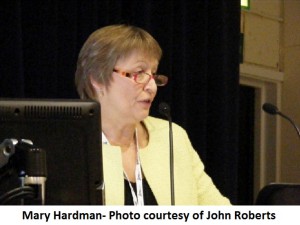As a first timer to an IRRV conference, I thought the line-up of speakers and the range of topics covered were excellent. Having recently attended their Keele conference, I picked up some interesting statistics I found useful and worth sharing. Broken down into three areas the first blog focuses on Business Rates which proved to be a hot topic at the event.
 BUSINESS RATES REVIEW
BUSINESS RATES REVIEW
Nick Cooper from the Department for Communities and Local Government kicked the proceedings off by focussing on the policy review around Business Rates. Putting things into context Nick stated that Local Authorities accounted for around a quarter of UK public spending coming in at around £185 billion per year. He also noted that Business Rates are becoming increasingly important as a means of generating revenue for Authorities supported by income coming in from other areas including Grants, Council Tax and Housing.
As has been widely reported in the press a major review of Business Rates is being conducted to ensure that by 2017 the rates properly reflect the structure of the modern economy, providing clearer billing, better information share and a more efficient appeals system.
 THE 2017 REVALUATION PROCESS
THE 2017 REVALUATION PROCESS
Mary Hardman, Director of Non-Domestic Rates from the Valuation Office Agency (VOA) also presented, providing more detail around the prospects for the 2017 Revaluation. Mary noted that there were 1.9 million properties in England and Wales with £62.5 billion in rateable value at both a central and local level with 348 billing authorities.
The work currently taking place is focussing on gathering rental evidence, adjusting and analysing rental evidence and conducting market knowledge reports. The plan is to start producing valuations and by the end of March 2016, 80% of the list is expected to be complete with the first draft list published by 30th September 2016.
The aim is to get the ratings list as accurate, robust and as stable as possible with ratepayers being approached in advance to agree the principles behind the valuations method with the aim of reducing the amount of appeals in future.
 WHAT CAN WE EXPECT FROM FUTURE BUSINESS RATE RETENTION?
WHAT CAN WE EXPECT FROM FUTURE BUSINESS RATE RETENTION?
Some interesting insights were also shared on business rate retention in the future courtesy of Roger Messenger at Wilks Head and Eve LLP. Roger noted that the business rates appeal pattern wasn’t consistent, he went on to say it’s difficult to forecast and we may start to see bigger appeals put forward due to the changes in backdating. Roger stated that larger companies with multiple offices throughout the UK may follow the lead of Virgin Media and put forward the case to pay just one business rate rather than say 70 or so spread across different regions. This obviously could have wide-reaching implications at a local level for authorities reliant on those business rate collections.
There was also mention of the frequency of revaluations coming down to three years rather than every five years but questions were raised around the feasibility of this with VOA staff cuts and the reliability of what was then produced.
Finally there was discussion around the possibility of whether farming and agriculture was rateable or not and if it does become rateable, Richard Harbord, Past President of the IRRV posed the question should these sectors have rate relief? Richard also noted the possibility of tourist taxes but stated that this has never really been followed up in any great detail.
Find out what was covered on the topic of ‘Enforcement’ at the IRRV Keele Conference here >
